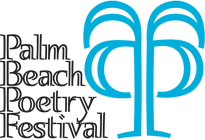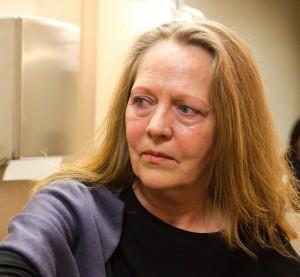 Poetry is a craft of the invisible: craft for the mind and for the rigor. We will consider the invisible as the space between an event, and that event becoming a poem. Participants will send two poems prior to the first workshop meeting. We will work together with a related exercise. I want us to attempt to write great poetry, understanding we might fail. The workshop will be run in a serious and supportive way. As I was told by Joseph Brodsky, poetry is the greatest invention of mankind. In this workshop we will work together with the spirit of this statement in mind. Participants will send two poems prior to the workshop and bring 17 copies to the first workshop meeting.
Poetry is a craft of the invisible: craft for the mind and for the rigor. We will consider the invisible as the space between an event, and that event becoming a poem. Participants will send two poems prior to the first workshop meeting. We will work together with a related exercise. I want us to attempt to write great poetry, understanding we might fail. The workshop will be run in a serious and supportive way. As I was told by Joseph Brodsky, poetry is the greatest invention of mankind. In this workshop we will work together with the spirit of this statement in mind. Participants will send two poems prior to the workshop and bring 17 copies to the first workshop meeting.
Archives: workshops
workshop information
INTERVIEW AND GALA READING WITH ROBERT HASS
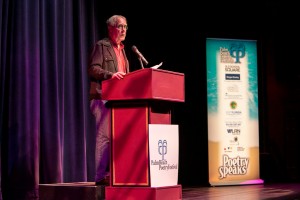 A poet of great eloquence, clarity, and force, whose work is rooted in the landscapes of his native Northern California. In his tenure as U.S. Poet Laureate (1995-1997), he spent two years battling American illiteracy, armed with the mantra, “imagination makes communities.” His deep commitment to environmental issues led him to found River of Words (ROW) , an organization that promotes environmental and arts education in affiliation with the Library of Congress Center for the Book.
A poet of great eloquence, clarity, and force, whose work is rooted in the landscapes of his native Northern California. In his tenure as U.S. Poet Laureate (1995-1997), he spent two years battling American illiteracy, armed with the mantra, “imagination makes communities.” His deep commitment to environmental issues led him to found River of Words (ROW) , an organization that promotes environmental and arts education in affiliation with the Library of Congress Center for the Book.
His many books of poetry include Field Guide, Praise, Human Wishes, and Sun Under Wood, a book of essays on poetry, Twentieth Century Pleasures. Hass translated Nobel Prize-winning Polish poet, Czeslaw Milosz, and edited Selected Poems: 1954-1986 by Tomas Transtromer, The Essential Haiku: Versions of Basho, Buson, and Issa; Poet’s Choice: Poems for Everyday Life; and Modernist Women Poets: An Anthology (with Paul Ebenkamp). His collection of poems Time and Materials won both the National Book Award and the Pulitzer Prize.
* On Tuesday, January 19, 2016 at 4 p.m. we welcome Robert Hass in an interview conducted by faculty poet, Carol Frost, followed by a Question & Answer Session.
* On Wednesday evening, January 20, 2016 at 8:00 p.m. we will once again welcome Mr. Hass to the stage for the festival’s Gala Reading.
These are both ticketed public events. See xxx link for more information or to purchase tickets.
WORD BY WORD, LINE BY LINE with THOMAS LUX
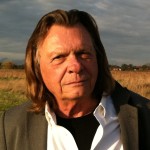
We will pay close attention, in minute detail, to all the elements that go into writing a poem. So: we’ll do word by word, line by line readings. Frost said that the primary way to get to the reader’s heart and mind is through the reader’s ear. The sound, the noise of a poem, demands our attention. We must be tough, honest and direct with each other’s work and also be generous, thoughtful and never condescending or dismissive. A good workshop can do both. Bring in three or four poems, seventeen copies of each, for discussion.
WORD BY WORD, LINE BY LINE with THOMAS LUX
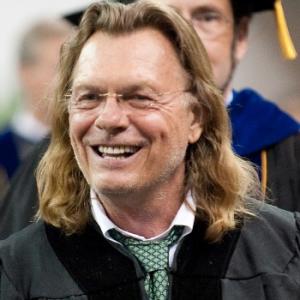 We will pay close attention, in minute detail, to all the elements that go into writing a poem. So: we’ll do word by word, line by line readings. Frost said that the primary way to get to the reader’s heart and mind is through the reader’s ear. The sound, the noise of a poem, demands our attention. We must be tough, honest and direct with each other’s work and also be generous, thoughtful and never condescending or dismissive. A good workshop can do both. Bring in three or four poems, seventeen copies of each, for discussion.
We will pay close attention, in minute detail, to all the elements that go into writing a poem. So: we’ll do word by word, line by line readings. Frost said that the primary way to get to the reader’s heart and mind is through the reader’s ear. The sound, the noise of a poem, demands our attention. We must be tough, honest and direct with each other’s work and also be generous, thoughtful and never condescending or dismissive. A good workshop can do both. Bring in three or four poems, seventeen copies of each, for discussion.
PEELING THE ONION: REVEALING THE LYRIC VOICE with CAMPBELL MCGRATH
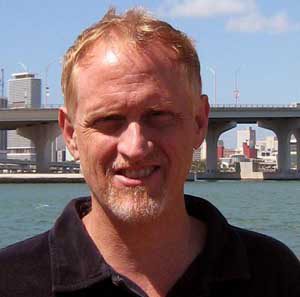 This workshop will examine the lyric poem from the point of view of the speaker— the voice that sings or cries or whispers in the reader’s ear. In it we will learn how to create a fully-realized lyric voice, layer by layer, as in the proverbial onion. Guided by examples from Yusef Komunakaa to Gary Snyder, Coleridge to Elizabeth Bishop, we will explore the physical, psychological and chronological spaces the poetic voice must navigate. Class-time will be devoted primarily to workshopping student work—both assigned poems, written from one day to the next, and at least one poem you bring with you to Palm Beach. So bring copies of that poem to our first workshop session, and be ready for a great week of reading, writing and talking poetry.
This workshop will examine the lyric poem from the point of view of the speaker— the voice that sings or cries or whispers in the reader’s ear. In it we will learn how to create a fully-realized lyric voice, layer by layer, as in the proverbial onion. Guided by examples from Yusef Komunakaa to Gary Snyder, Coleridge to Elizabeth Bishop, we will explore the physical, psychological and chronological spaces the poetic voice must navigate. Class-time will be devoted primarily to workshopping student work—both assigned poems, written from one day to the next, and at least one poem you bring with you to Palm Beach. So bring copies of that poem to our first workshop session, and be ready for a great week of reading, writing and talking poetry.
BRINGING THE OUTSIDE IN with AIMEE NEZHUKUMATATHIL
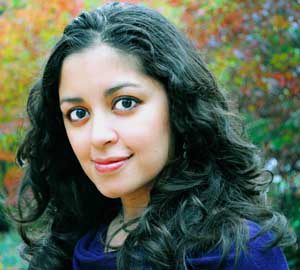 Through a keen sense of observation and an ardent pulse to translate nature’s language, you’ll learn what nature poetry can be —how to illuminate its terrors and stark realities, its deep-sea baubles, prairie grass-swish, and northern-light delights. Through carefully crafted examinations of poems that showcase the environment in dynamic and surprising ways, and through various immersions in writing (some outdoors, weather permitting), we’ll explore/explode forms of poetry to record your own observations about landscape and the environment–forms that are sure to keep you going long after this class ends. The second half of workshop will involve constructive critique of student poems. Participants will send 2-3 poems in advance of the workshop and bring copies of those poems to the first session.
Through a keen sense of observation and an ardent pulse to translate nature’s language, you’ll learn what nature poetry can be —how to illuminate its terrors and stark realities, its deep-sea baubles, prairie grass-swish, and northern-light delights. Through carefully crafted examinations of poems that showcase the environment in dynamic and surprising ways, and through various immersions in writing (some outdoors, weather permitting), we’ll explore/explode forms of poetry to record your own observations about landscape and the environment–forms that are sure to keep you going long after this class ends. The second half of workshop will involve constructive critique of student poems. Participants will send 2-3 poems in advance of the workshop and bring copies of those poems to the first session.
THE POEM ON THE TABLE with MARY RUEFLE
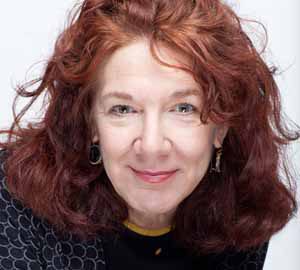 The poem on the table sometimes leads us into the wild blue yonder of larger concerns and sometimes leads us deeper and deeper into a single word on the page. This is a traditional critique-based workshop, but my approach is always language, the words on the page, one by one, as they take their walk. We will talk about three poems by each participant, spending approximately twenty minutes on each poem. Please bring, then, seventeen copies of three poems to the first meeting. Advice: don’t bring poems you are satisfied with; though I understand your desire to impress. Bring instead, poems you are worried about, ones you don’t know how to end, poems you feel uncannily unsettled by and that cause you to lose sleep or be embarrassed by. I am dedicated to the art of writing bad poems! There is no other way to move forward. There is no other way to be happy.
The poem on the table sometimes leads us into the wild blue yonder of larger concerns and sometimes leads us deeper and deeper into a single word on the page. This is a traditional critique-based workshop, but my approach is always language, the words on the page, one by one, as they take their walk. We will talk about three poems by each participant, spending approximately twenty minutes on each poem. Please bring, then, seventeen copies of three poems to the first meeting. Advice: don’t bring poems you are satisfied with; though I understand your desire to impress. Bring instead, poems you are worried about, ones you don’t know how to end, poems you feel uncannily unsettled by and that cause you to lose sleep or be embarrassed by. I am dedicated to the art of writing bad poems! There is no other way to move forward. There is no other way to be happy.
IT’S ALL IN THE DETAILS with TIM SEIBLES
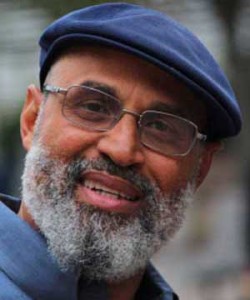 In this workshop we will focus on the importance of specificity in writing—the particulars, the images, the exacting figurative gestures that provide the fuel for gripping poetry. Participants will bring poems in various stages of development for review and suggestions for improvement along these lines. In addition to these close readings and critiques, some time will be dedicated to short in-class writing exercises to help each of us break out of well-worn writing routines and strategies. We will work on short poems, narrative poems, dream poems, surrealist poems, and persona poems—poems written in a voice other than the author’s own. Such work will allow us to add color and some new shades to our writerly palettes. Participants will send 3-4 poems in advance of the workshop and bring copies for distribution to the first class meeting.
In this workshop we will focus on the importance of specificity in writing—the particulars, the images, the exacting figurative gestures that provide the fuel for gripping poetry. Participants will bring poems in various stages of development for review and suggestions for improvement along these lines. In addition to these close readings and critiques, some time will be dedicated to short in-class writing exercises to help each of us break out of well-worn writing routines and strategies. We will work on short poems, narrative poems, dream poems, surrealist poems, and persona poems—poems written in a voice other than the author’s own. Such work will allow us to add color and some new shades to our writerly palettes. Participants will send 3-4 poems in advance of the workshop and bring copies for distribution to the first class meeting.
NEW THRESHOLDS, NEW ANATOMIES! with TOM SLEIGH
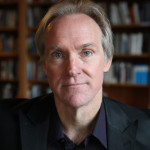 How do the kinds of sentences you write open up new areas of experience? What is and isn’t your material? How is that material linked to your idea of yourself as a poet, and what you will or won’t allow yourself to say? By using four exemplary poets as a springboard, this workshop will give you new approaches to process and language, syntax and line, description and figuration, music and voice, as well as encouraging you to face into new areas of experience that will keep you going once this workshop is over. We’ll use imitation as a way to originate new work. Bring three poems in progress, (17 copies), though we’ll also look at work you produce during the workshop. (New thresholds, new anatomies! —Hart Crane)
How do the kinds of sentences you write open up new areas of experience? What is and isn’t your material? How is that material linked to your idea of yourself as a poet, and what you will or won’t allow yourself to say? By using four exemplary poets as a springboard, this workshop will give you new approaches to process and language, syntax and line, description and figuration, music and voice, as well as encouraging you to face into new areas of experience that will keep you going once this workshop is over. We’ll use imitation as a way to originate new work. Bring three poems in progress, (17 copies), though we’ll also look at work you produce during the workshop. (New thresholds, new anatomies! —Hart Crane)
Continue reading “NEW THRESHOLDS, NEW ANATOMIES! with TOM SLEIGH”
UNSETTLING AND REMAKING with MARY SZYBIST
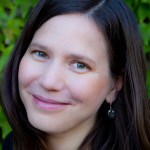 This workshop will draw inspiration from the counsel of Ralph Waldo Emerson: “People wish to be settled: only as far as they are unsettled is there any hope for them.” In this spirit, we will experiment with different generative exercises and look to contemporary as well as canonical poems to guide us, to challenge us, and to spur us on. Our workshop discussions will devote time to carefully considering the ambitions, achievements, and possibilities of poems by each workshop participant, and we will look at some examples of revision processes by well-known poets to aid us in developing strategies for our own revision and re-making. Please bring 17 copies of three poems-in-progress to the first meeting.
This workshop will draw inspiration from the counsel of Ralph Waldo Emerson: “People wish to be settled: only as far as they are unsettled is there any hope for them.” In this spirit, we will experiment with different generative exercises and look to contemporary as well as canonical poems to guide us, to challenge us, and to spur us on. Our workshop discussions will devote time to carefully considering the ambitions, achievements, and possibilities of poems by each workshop participant, and we will look at some examples of revision processes by well-known poets to aid us in developing strategies for our own revision and re-making. Please bring 17 copies of three poems-in-progress to the first meeting.
THE HUNGRY EAR: POEMS OF FOOD, DRINK & DESIRE with KEVIN YOUNG
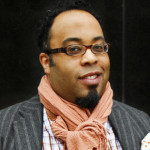
In this workshop we will use food as raw material and metaphor for our writing, discovering its many meanings. We will treat the workshop like a test kitchen, looking for fresh ingredients for poems and new approaches to older forms. Kevin Young’s anthology The Hungry Ear will serve as a sourcebook for our reading and our writing. Bring three poems in progress to the first workshop, though we’ll also look at work you produce during the workshop. Writers will emerge from the workshop with a sense of poems as sustenance and necessity, focused on the possibilities of line, rhythm, and the lyric.
